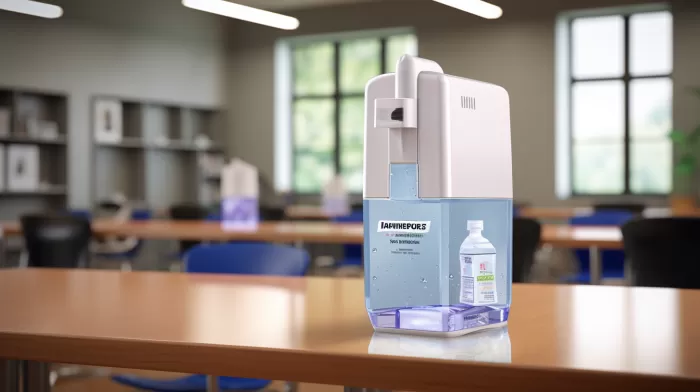You might think that using hand sanitizer helps protect you from getting sick, but you could be mistaken. A study from New Zealand has suggested that the use of hand sanitizers, after washing your hands, might not make much of a difference in preventing illness. The research examined the impact of having alcohol-based hand sanitizer dispensers in classrooms.
In the study, involving over 2,400 students, some schools were provided with sanitizer dispensers, and students were instructed to use them after coughing or sneezing. The results showed that the rate of absences caused by illness was practically equal in schools where sanitizer was available, compared to those that didn’t have sanitizer.
The data from this study also revealed that the number of absences linked to specific illnesses, the length of illnesses and lengths of school absences, or the number of episodes when another family member became ill, didn’t have significant differences. In conclusion, the researchers stated that “the provision of hand sanitizers in addition to usual hand hygiene in primary schools in New Zealand did not prevent disease of severity sufficient to cause school absence.”
Washing your hands still matters
While hand sanitizer may not provide added protection after hand washing, it’s important not to underestimate the importance of frequently washing your hands with soap and water. The Centers for Disease Control and Prevention (CDC) emphasizes the role of proper hand hygiene in preventing the spread of illnesses. Washing your hands is crucial to remove germs, avoid getting sick, and prevent spreading germs to others. The CDC provides guidance on when and how to wash your hands effectively.
Different types of hand sanitizers
It’s critical to choose the correct type of hand sanitizer for it to be beneficial. There are generally two types: alcohol-based and alcohol-free. According to the Food and Drug Administration (FDA), hand sanitizers should contain at least 60% alcohol to reduce the number of germs on your hands. Alcohol-free hand sanitizers may not be as effective in killing germs, and may only slow down the growth of germs rather than killing them outright. Some hand sanitizers also contain added ingredients to moisturize and soothe the skin.
When to use hand sanitizer
While the study suggests that hand sanitizer doesn’t provide additional protection when used after hand washing, it can still be useful in certain situations. When soap and water are unavailable, hand sanitizers might be a convenient and effective alternative. Travel-size sanitizers could be kept in your car or bag for use when needed. Hand sanitizer can also be a good addition to your home or office, especially during flu season, when the risk of illness can be higher.
Take a holistic approach to staying healthy
Preventing illness isn’t just about hand hygiene; there are many other steps you can take to minimize your risk of getting sick. These include:
- Eating a healthy, balanced diet to provide your body with the nutrients it needs to support a strong immune system.
-
Staying physically active and maintaining a healthy weight, as this can help improve your overall health and well-being.
-
Getting enough sleep, as lack of sleep can weaken your immune system and make you more susceptible to illness.
-
Managing stress levels, as chronic stress has been linked to a weakened immune system.
-
Staying up to date with vaccinations and annual flu shots.
-
Avoiding close contact with sick people and staying home when you’re not feeling well.
-
Practicing good respiratory hygiene by covering your mouth and nose when coughing or sneezing and disposing of tissues properly.
In conclusion, it’s essential to take a comprehensive approach to staying healthy and preventing illness, which goes beyond just using hand sanitizer. Constantly washing your hands and using sanitizer is only one aspect of a holistic and healthy lifestyle. By focusing on overall health and well-being, you can give yourself the best chance of staying well.



